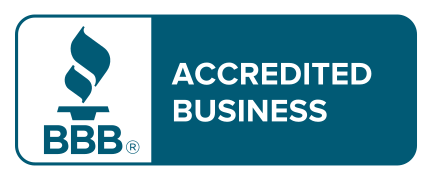Understanding Seller Financing for Land: A Beginner’s Guide
The basics of seller financing you can use to maximize profits and do more deals
Justin Ignacio
5/24/2024
In this article we will cover:
- What is Seller Financing?
- Definition and basic concept.
- Benefits of Seller Financing
- Larger buyer pool
- Faster sales cycle
- Increased profits over time
- No Termites, Tenants, or Toilets
- Predictable Monthly Income
- Downsides
- Risk of default
- Cash tied up
- Depreciating asset
- Monthly note servicing
- Components of Seller Financing
- Promissory note
- Mortgage
- Deed of trust
- Seller Financing Key Metrics
- Interest rate
- Down payment
- Term
Seller Financing Vacant Land
As both the land flipping market and broader real estate market shift, using creative strategies like seller financing (sometimes also known as Owner Financing) for land deals will be key to staying ahead of the onslaught of newbie land flippers. But what if you’re intimidated by the “mysterious” mechanics of a land note or maybe you’ve heard horror stories of buyers who ghost on payments leaving investors to deal with the hassle of foreclosure?
Take a breath and read on. In this guide, we’ll explain the benefits of seller financing, discuss the basic terms and explain how to set up seller financing the right way. If you need help along the way, don’t hesitate to reach out. We’re experienced vacant land seller financing partners and are happy to share our experience!

Just like a house, vacant land can be sold with seller financing.
What Is Seller Financing?
Land seller financing may take on a few different names – “owner financing”, “promissory note”, “holding paper”, “land note” or most commonly just a “note”. However these terms all refer to the same concept. Just like with a regular home mortgage, vacant land can be financed as well. Seller financing is simply a buyer and seller agreeing on an overall purchase price but instead of a lump sum cash payment, the buyer makes a down payment followed by monthly payments with interest. There are many different ways the monthly payments can be arranged but for now, we’ll keep it simple by saying that the monthly payment amount made by the buyer is the same amount each month until the entire outstanding balance is paid off.
Benefits of Seller Financing
As a land seller, there are many benefits to offering seller financing on vacant land.
Increased Buyer Pool
Americans love financing! From cars, credit cards, furniture to even airline flights, financing is available everywhere. By offering financing, you are expanding your buyer pool to a culture that has already been conditioned to monthly payments. Seller financing removes the barrier of buyers needing a large cash amount to purchase land. By reducing the cost of land ownership to the amount of the down payment instead of the entire purchase price, the number of potential buyers increases immensely.
Faster Sales Cycle
By increasing your buyer pool, you simultaneously decrease the time it takes to find a buyer. If you also have a land note funding partner or sell your land note immediately, you can take your profits and move on to the next deal. As a flipper, the velocity of money is key, especially if you’re using investor funds that accrue interest.
Increased Profits Over Time
Buyers who utilize seller financing generally understand that the property will be sold at a higher price than an all cash offer. Not only can you sell your vacant land for a higher price using seller financing but you will also benefit from the interest payments each month. The power of compounding interest is not to be underestimated. If you use long term strategies to continue to grow your note portfolio, you can amass a large portfolio of notes that generate stable monthly income.
No Tenants, Termites or Toilets
Every real estate investor dreams of stable monthly cash flow and every real estate investor also dreads the hassle and expenses of being a landlord. With seller financing, the end buyer owns the land and there’s no buildings to maintain. Land notes do come with risks but they are one of the most passive (and best kept secret) real estate assets.
Predictable Monthly Payments
The terms of a promissory note are negotiated at the beginning when the property is sold to the buyer. This means that your investment has a predictable return. You definitely can’t say the same about the stock market, crypto, or even other real estate investments. Better yet, your money is backed by a tangible, real asset.
Downsides of Seller Financing
Buyer Default – By far the most talked about concern of seller financing is risk of default. Specifically with vacant land, buyers have much less emotional attachment to their land than their homes. Default rates for vacant land are definitely higher than for homes. However with the right screening processes in place you can reduce the risk of default. By doing your homework ahead of time and working with an experienced note investor you can avoid or mitigate the effects of a buyer default.
Cash is Tied Up – In order to offer seller financing, you must have the cash on hand to purchase the property outright before selling it on financing to an end buyer. This means flippers cannot use assignments, double closes, novations, equity partners or hard money for a deal. If you don’t have the cash to offer seller financing but there is buyer demand for financing, contact us and we can help get your deal closed!
Notes are a Depreciating Asset – Unlike houses or vacant land, seller financing notes are a depreciating asset. Each month, the value of your note portfolio decreases by the amount of payments made by your buyers. Unless you invest your gains wisely, eventually the portfolio value will go to zero when all your notes are paid off.
Monthly Note Servicing – Vacant land note investing is as close to passive income as possible…but there are still monthly admin tasks and late payments to be followed up on. As your note portfolio grows, this can turn into a major headache. But not to worry, there are many note servicing companies that can handle all of this for you and their fees are usually paid by the buyers.
Components of Seller Financing
Offering financing to your buyer requires two legal documents. The first is the Promissory Note and the second is either (depending on which state the property is in) a Mortgage or Deed of Trust.
Promissory Note – This is the actual document that explains the terms and conditions of how the property value will be paid to the seller. The promissory note outlines the interest rate, payment amounts, payment due dates, late payment timeline, and late payment fees. It is signed by both buyer and seller but not recorded with the county.
Mortgage – The mortgage (in states that utilize mortgages instead of deeds of trust) is the legal document that secures the property against the loan created in the promissory note. Put simply, a mortgage allows the buyer to finance the property but also allows the lender to foreclose if the repayment terms are not met. With a mortgage, title of the property is transferred to the borrower but the lender holds a lien against the property.
Deed of Trust – Some states utilize a deed of trust instead of a mortgage. A deed of trust also secures the property against the loan created in the promissory note but with a deed of trust, title of the property is held by a neutral third party (usually a title company) until the loan is paid off. The lender still retains a lien against the property and foreclosure with a deed of trust usually doesn’t require judicial involvement.
Both mortgages or deeds of trust are signed, notarized and recorded with the county in which the property is located. If you intend to re-sell the note, it is important to retain original, wet-signed copies of the note documents.
When creating a seller financing note, it is very important to get the paperwork correct. There are key components that should be included in the legal terms to protect you in case of default. Additionally, certain clauses must be included in order to be able to re-sell the note. Be sure you consult with a local real estate attorney or request the title company draft up the note documents to ensure you stay compliant with local laws.
Reach out to us if you need a referral or have questions about key clauses to include.
Seller Financing Key Metrics
Down Payment – This is the initial lump sum amount paid by the buyer. As a general rule of thumb, you should require a minimum of 20% of the purchase price as a down payment. The higher the down payment the less likely a buyer is to default as they will lose a greater portion of equity if you foreclose.
Interest Rate – This is the monthly interest rate paid by the buyer on the outstanding balance. The true power of note investing is the compounding interest made by note investors. Interest rates charged on vacant land are usually much higher than rates charged on home mortgages. Be sure to check local usury laws to see if there is a limit to the interest that can be charged.
Term – This is how many payments (usually measured in months or years, i.e. 36 months or 3 years) the buyer will make in order to pay off the note. The longer the term, the lower the monthly payments will be but the higher the overall amount paid by the buyer. Unlike 30 year mortgages on houses, vacant land terms are usually 1-7 years.
Summary
Setting up your first note can be a bit daunting but once you’ve gone through the process, you’ll realize it is not impossible. If you need help setting up or funding a seller financed deal we’re happy to help. We can assist by connecting you to a note servicer, referrals to note friendly title companies/attorneys and can help with the required documentation. If the process is overwhelming or you prefer a cash payment as opposed to a note, we can partner with you to fund the deal. We can also purchase the note directly from you immediately after closing.
Please contact us if you have any questions!
Disclaimer: Consult your attorney, accountant, and/or financial advisor for individual financial decisions. Justin Ignacio and The Land Helpers are not giving legal, accounting, investing or tax advice. Justin Ignacio is not an attorney, CPA, or tax professional.
